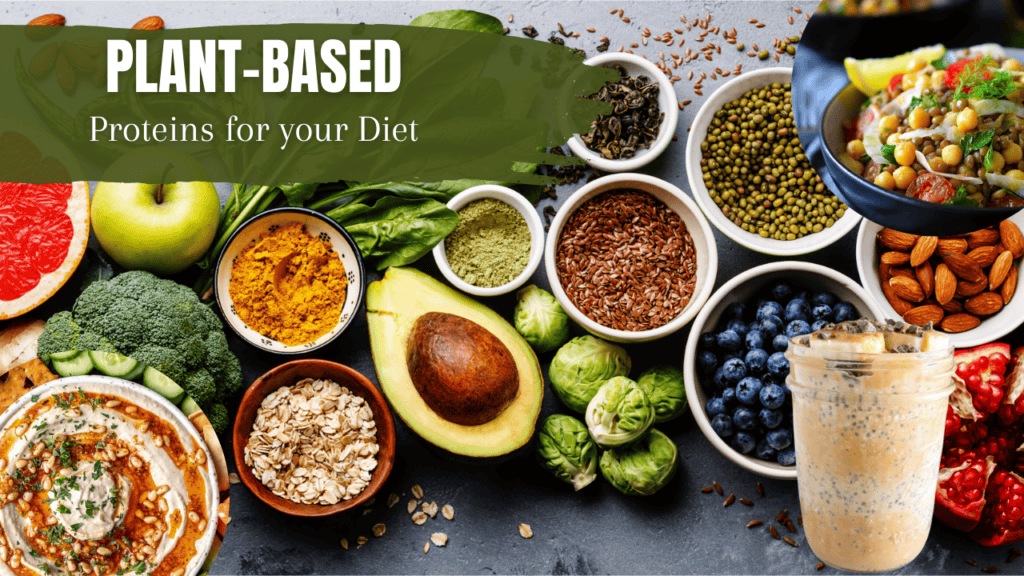Exploring the Benefits of Plant-Based Diets
Introduction
The popularity of plant-based diets is skyrocketing as people recognize their numerous health, environmental, and ethical advantages. More individuals are adopting vegetarian, vegan, and flexitarian lifestyles to improve their well-being and reduce their carbon footprint. But what makes a plant-based diet so beneficial? In this comprehensive guide, we will explore the benefits of plant-based diets, list top vegan and vegetarian protein sources, and analyze the environmental impact of meat consumption.
Health Benefits of a Plant-Based Diet
1. Boosts Heart Health
A plant-based diet is loaded with fiber, antioxidants, and heart-friendly fats that help lower cholesterol and reduce the risk of heart disease. Studies indicate that plant-based eaters have lower blood pressure and a decreased chance of developing cardiovascular diseases.
✅ Key Benefits:
- Lowers bad cholesterol (LDL) levels
- Reduces the risk of stroke and heart attack
- Minimizes inflammation
2. Aids in Weight Loss and Management
Plant-based diets tend to be lower in calories and unhealthy fats, making them effective for weight loss and management. Research shows that people on plant-based diets generally have lower body mass indexes (BMIs) than those who consume meat regularly.
✅ Why It Works:
- High fiber intake promotes fullness
- Fewer processed and high-fat foods
- Supports metabolism and digestion
3. Reduces the Risk of Chronic Diseases
A diet abundant in fruits, vegetables, whole grains, and legumes is linked to a lower risk of chronic conditions such as diabetes, cancer, and obesity. The high levels of vitamins, minerals, and antioxidants in plant-based foods help prevent cell damage and inflammation.
✅ Protects Against:
- Type 2 diabetes
- Certain cancers (colon, breast, and prostate)
- Cognitive decline and Alzheimer’s disease
4. Enhances Digestive Health
Plant-based foods are naturally rich in dietary fiber, which supports a healthy gut microbiome, improves digestion, and prevents constipation.
✅ Supports:
- Healthy digestion and gut flora
- Prevention of digestive disorders such as IBS
- Efficient nutrient absorption
5. Increases Energy Levels and Longevity
The nutrient-dense nature of a plant-based diet fuels the body with essential vitamins and minerals, leading to increased energy levels and a longer, healthier life.
✅ Contributes to:
- Sustained energy throughout the day
- Glowing skin and improved hair health
- A longer lifespan with reduced disease risk
https://terimerinews.com/millets-the-superfoods/
Top Vegan and Vegetarian Protein Sources
One of the biggest myths about plant-based diets is that they lack protein. However, several plant-based foods provide ample protein to meet daily requirements.
Best Plant-Based Protein Sources:
| Food | Protein (per 100g) |
|---|---|
| Lentils | 9g |
| Chickpeas | 19g |
| Quinoa | 4.1g |
| Tofu | 8g |
| Tempeh | 19g |
| Edamame | 11g |
| Chia Seeds | 17g |
| Hemp Seeds | 31g |
| Almonds | 21g |
| Pumpkin Seeds | 30g |
| Black Beans | 9g |

✅ How to Add More Plant-Based Proteins to Your Diet:
- Toss lentils and beans into soups and salads.
- Snack on nuts, seeds, and hummus.
- Use tofu or tempeh as protein-rich meat substitutes.
- Make smoothies with chia, hemp seeds, or peanut butter.
Environmental Impact of Meat Consumption
Choosing a plant-based diet benefits not just individuals but the entire planet. The meat industry is one of the top contributors to environmental damage.
1. Reduces Greenhouse Gas Emissions
Animal agriculture is a major source of methane, carbon dioxide (CO2), and nitrous oxide emissions, all of which contribute to climate change. Shifting to plant-based diets can significantly reduce greenhouse gas emissions.
✅ Fact: Producing 1kg of beef emits 27kg of CO2, whereas 1kg of lentils generates only 0.9kg CO2.
2. Conserves Water Resources
Meat production is incredibly water-intensive. Producing just 1kg of beef requires 15,400 liters of water, while growing the same amount of vegetables or grains requires far less.
✅ Sustainable Choices:
- Opt for lentils, beans, and grains over animal proteins.
- Reduce meat consumption to conserve water resources.
3. Prevents Deforestation and Biodiversity Loss
Millions of acres of forests are cleared each year to create grazing lands and grow feed for livestock. This practice leads to habitat destruction and species extinction.
✅ Key Benefits:
- Slows down deforestation rates
- Preserves endangered wildlife habitats
- Supports ecosystem sustainability
4. Reduces Pollution and Soil Degradation
Animal waste and runoff from factory farms contaminate rivers and soil, leading to environmental degradation. A plant-based lifestyle reduces this pollution significantly.
✅ Impact Reduction:
- Prevents water pollution from livestock waste
- Decreases reliance on harmful pesticides and antibiotics
How to Transition to a Plant-Based Diet
Shifting to a plant-based diet doesn’t have to be overwhelming. Here are some simple steps to help you transition smoothly:
✅ Start Gradually: Begin by adding more plant-based meals to your week, like Meatless Mondays.
✅ Experiment with Recipes: Try plant-based versions of your favorite dishes.
✅ Plan Balanced Meals: Make sure to include enough protein, healthy fats, and essential nutrients.
✅ Read Food Labels: Avoid hidden animal ingredients in processed foods.
✅ Join a Community: Connect with plant-based groups for tips and motivation.
Final Thoughts: A Healthier You and a Healthier Planet
Adopting a plant-based diet offers immense benefits, from improved health and energy levels to significant environmental impact reduction. By making mindful food choices, we can contribute to a sustainable future while nourishing our bodies.
✅ Are You Ready to Make the Switch? Share your favorite plant-based meal in the comments below! Also, spread the word to encourage others to embrace a healthier lifestyle.
FAQs
Q1: Can I get enough protein on a plant-based diet? Yes! Lentils, beans, tofu, quinoa, nuts, and seeds provide all the protein you need.
Q2: Does a plant-based diet aid in weight loss? Absolutely! Plant-based diets are rich in fiber and low in unhealthy fats, making weight management easier.
Q3: Is eating plant-based expensive? Not necessarily. Staples like beans, rice, and seasonal vegetables are affordable and nutritious options.
More Details on the Protein – based diets.
Tofu vs Tempeh: What’s the Difference?
🌱 Start your plant-based journey today for a healthier body and a greener planet! 🌎











